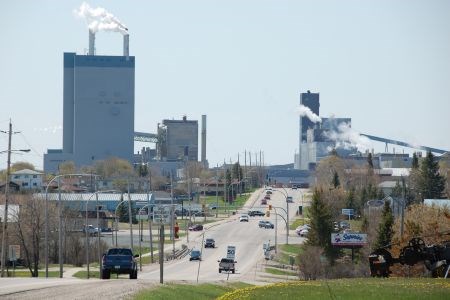Two value-added wood and biomass projects slated for Dryden appear to be on hold.
Aspenware, a British Columbia manufacturer of eco-friendly cutlery, hasn't publicly committed to establishing a manufacturing plant to produce biodegradable, wooden utensils. The operation would potentially employ more than 100 people in an industrial park subdivision.
Dryden's economic development manager Vicki Kurz was out to downplay comments made by Mayor Craig Nuttall that Aspenware was not coming to town and, instead, was concentrating on refining a next-generation production line at its Vernon headquarters.
Kurz said Aspenware is working to secure financing through Regulus Investment Inc. from Toronto.
She added the company is focusing on getting this line up and running before continuing with its expansion plans for northwestern Ontario.
“The financing will come when they get this line done. This line that they're working on is the one they'll put in Dryden.”
Two years ago, the company proposed construction of a 50,000-square-foot plant utilizing birch and veneer purchased from First Nation harvesters in the region.
Aspenware had submitted an application for Crown fibre as part of the province's wood supply competition, but nothing had been announced.
Kurz said the Aspenware as a contingency plan with deals on the side with area companies to secure fibre for what they need.
“Part of their business model is not to only depend on a dedicated wood supply from the province. For anybody in forestry right now that would be a critical error.”
Aspenware president Terry Bigsby did not respond to requests for an interview.
Kurz harbours no worries that the project will not go off.
“I'm not (worried), it's called patience.”
For a hard-luck forestry town that's lost more than 800 industry jobs over the last decade, Kurz said it's difficult to go out and beat the bushes to attract more value-added manufacturing when the situation with Ontario's Crown forests remains in limbo.
“Without the wood tenure and supply competition completed, we're sort of sitting here. You can't attract investment. If you weren't in the wood competition you're sort of out of luck.”
Another plan for an industrial park district heating scheme using biomass in Dryden's north end is also in a holding pattern.
The Dryden Development Corporation (DDC) partnered with a local company, Far North Biomass, and Germany's Lambion Energy Solutions on a plan to heat two Dryden industrial parks and a commercial-retail strip along the Trans-Canada Highway.
Kurz said her commission continues to work with Lambion to eventually come in as a potential tenant.
The German company makes high-efficiency boiler combustion systems using low-grade biomass and other wood residuals for energy generation.
Although Far North Biomass didn't secure any Crown wood from the province, Kurz said a district heating facility would not necessarily revolve around wood.
Lambion's technology burns other forms of biomass such as agricultural feedstock. The DDC is investigating whether agricultural crops can be grown on area farms for use in energy production.
Far North Biomass owner Bryan Tardiff said there's not much to report on their project beyond Dryden city council's approval of their feasibility plan.
His company, which he co-founded with trucker Louis Ricci, received a rejection slip in the provincial wood competition for a proposed wood pellet plant in nearby Ignace.
In an emailed response, Tardiff said he'll wait until after the October provincial election to see if it's worthwhile to continue with his projects.
“As it stands now, I've thrown away too much money to try again as long as the same people are involved in fibre decisions.”




